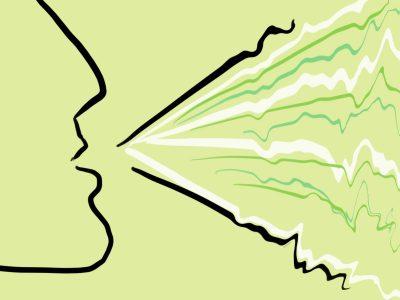I grew up in a vast family in a tiny town.
My older sister, my younger brother and I shared one tiny room with my parents. My mother struggled to speak Mandarin fluently, while my father had not completed high school.

We were taught from a young age that farming was the only way to support ourselves, so my sister and I learned how to plow the lands and plant crops at five years old. With much time and maturity, we soon became naturals at work.
We had no books in the house, and our sole source of entertainment was the fluorescent hue from our marble stones. I loved tossing them across the tranquil lakes, watching all the ripples dancing round and round, again and again.
However, in this household devoid of literacy, where no one could distinguish the difference between simple Chinese characters like “己” and “已” an unexpected obsession cultivated within a young boy — my brother.
He painted every piece he saw in the books “Superman,” “Moonlight Warrior” and“Wonder Travelers.” His gifted hands could bring these characters to life, so vividly that all these characters seemed like they could leap from the pages and talk with us.
But, perhaps inherited from my mother, he had a stammer. He could hardly write because he never attended school, so no one could understand him when he tried to recreate the original into his own spin-off, nor could grasp it when he tried to explain it verbally.
Gradually, everyone lost patience when he showed us his pieces, and his creative fire dwindled — until my father stumbled upon a special painting hidden away in the drawer.
He was captivated by the five different-colored persons with gigantic faces and chaotic, curling lines of text nearby. My father guessed that my brother had been trying to spell “family.”
From that moment on, our lives took an unexpected turn, and by the next day, we were donning the same clean school uniforms as the other children in the town.
Learning to speak and write Chinese was not as arduous as I had anticipated, but English was another story. My tongue struggled to articulate the letters like “n” and “l” correctly. I dreaded standing at the podium to present the language.
“Neither” morphed into “leather,” there was no moon in the “light” and, of course, no “night” was bright. People laughed about it, dubbing me a “manic farmer” because, in the stories I made, they saw a totally new creature — a boy with a rural accent and limited worldview.
Ironically, I embraced the nickname and believed I could bring laughter to everyone. However, by the time I reached fifth grade, I realized that no one was actually listening to my words, but merely stifling their laughter. Shame finally came, and I withdrew into silence.
But for my brother, who eventually overcame his stammer, language sparked a new way for him to craft more stories. He told me that because English was more strict with grammar, and Chinese was more abstract, he opted for simpler, more relatable subjects when conversing in the language not native to his tongue.
Still, his general understanding of the English language was subpar. No one stored “snakes”in the fridge, and “snacks” definitely did not prey on rats. When he prepared for a public speech in English, I feared he would be laughed at and return home in tears.
But, when the day finally came, I watched as my brother proudly stood before an audience and explained his inspiration behind his content.
As expected, he mispronounced most of his words, and subsequent laughter erupted. But no one actually criticized his mistakes as he continued to press on with unwavering confidence — converting his tedious presentation into a captivating, personal wonderland through a few intentional jokes.
My brother kept going, the words rolling off his tongue like rivers flowing into the ocean — smoothly and fluently. His unique perspective on the situation bestowed upon him a unique gift — a way of viewing the world with a sense of wonder, inspiring him to create.
He never felt shame in his work because he perceived this ability to create as a gift, not a fault of his native tongue. And just like that, he allowed me to see that my true talents lie in my capabilities to overcome my shame in learning to understand and retain a whole new dialect.
















































































































